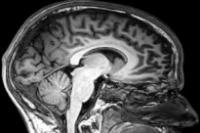
The Terri Schiavo case illustrates the heated controversy surrounding brain-damaged patients with disorders of consciousness. Some patients have suffered such severe brain damage that they have completely lost the capacity to be aware of themselves or their environment. This is known as the vegetative state. But patients with what is now known as the ‘minimally conscious state’ still possess at least rudimentary and intermittent awareness. These conditions raise difficult ethical questions. Is it in the interest of the patient to continue living in these conditions? Is it ever permissible to let such patients die rather than keep them alive at great cost? Or is life always sacred, and must never be ended, even if living is no longer a benefit to the patient? Can we be confident that awareness is really missing, and can we use neuroimaging to identify consciousness, or even communicate with seemingly non-conscious patients? If consciousness is present, but only in a rudimentary way, would this be a good thing, or rather make things worse, because only conscious patients can suffer?
Publications
- Cameron, J., Savulescu, J. and Wilkinson, D., (2022), 'Raqeeb, Haastrup and Evans: Seeking Consistency through a Distributive Justice-Based Approach to Limitation of Treatment in the Context of Dispute', Journal of Law, Medicine and Ethics, Vol: 50(1): 169-180 [PMC7613734]
- Gipson, J., Kahane, G. and Savulescu, J., (2014), 'Attitudes of Lay People to Withdrawal of Treatment in Brain Damaged Patients', Neuroethics, Vol: 7(1) pp.1-9 [open acess]
- Graham, M., (2019), 'Can they Feel? The Capacity for Pain and Pleasure in Patients with Cognitive Motor Dissociation', Neuroethics, Vol: 12(2): 153-169 [open access PMC6951816]
- Graham, M., (2018), 'Domains of Well-Being in Minimally Conscious Patients: Illuminating a Persistent Problem', American Journal of Bioethics Neuroscience, Vol: 9(2): 128–130 [open access PMC5989155]
- Wilkinson, D. and Savulescu, J. (2011), 'Knowing when to stop: futility in the ICU', Current Opinion in Anaesthesiology, Vol: 24(2) pp. 160-165 [open access]
- Kahane, G. and Savulescu, J. (2009), 'Brain-damaged patients and the moral significance of consciousness', The Journal of Medicine and Philosophy, Vol: 33(1) pp. 1-21 [open access]
- Kahane, G., Skene, L., Wilkinson, D. and Savulescu, J. (2009) 'Neuroimaging and the Withdrawal of Life-Sustaining Treatment from Patients in the Vegetative State', Medical Law Review, Vol: 17(2) [open access]
- Levy, N., (2009), 'What Difference does Consciousness Make?' Monash Bioethics Review, Vol: 28 (2) [open access]
- Wilkinson, D., Kahane, G., Horne, M. and Savulescu, J. (2009), 'Functional neuroimaging and withdrawal of life-sustaining treatment from vegetative patients',Journal of Medical Ethics, Vol: 35 pp. 508-511 [open access]
Audio and Media